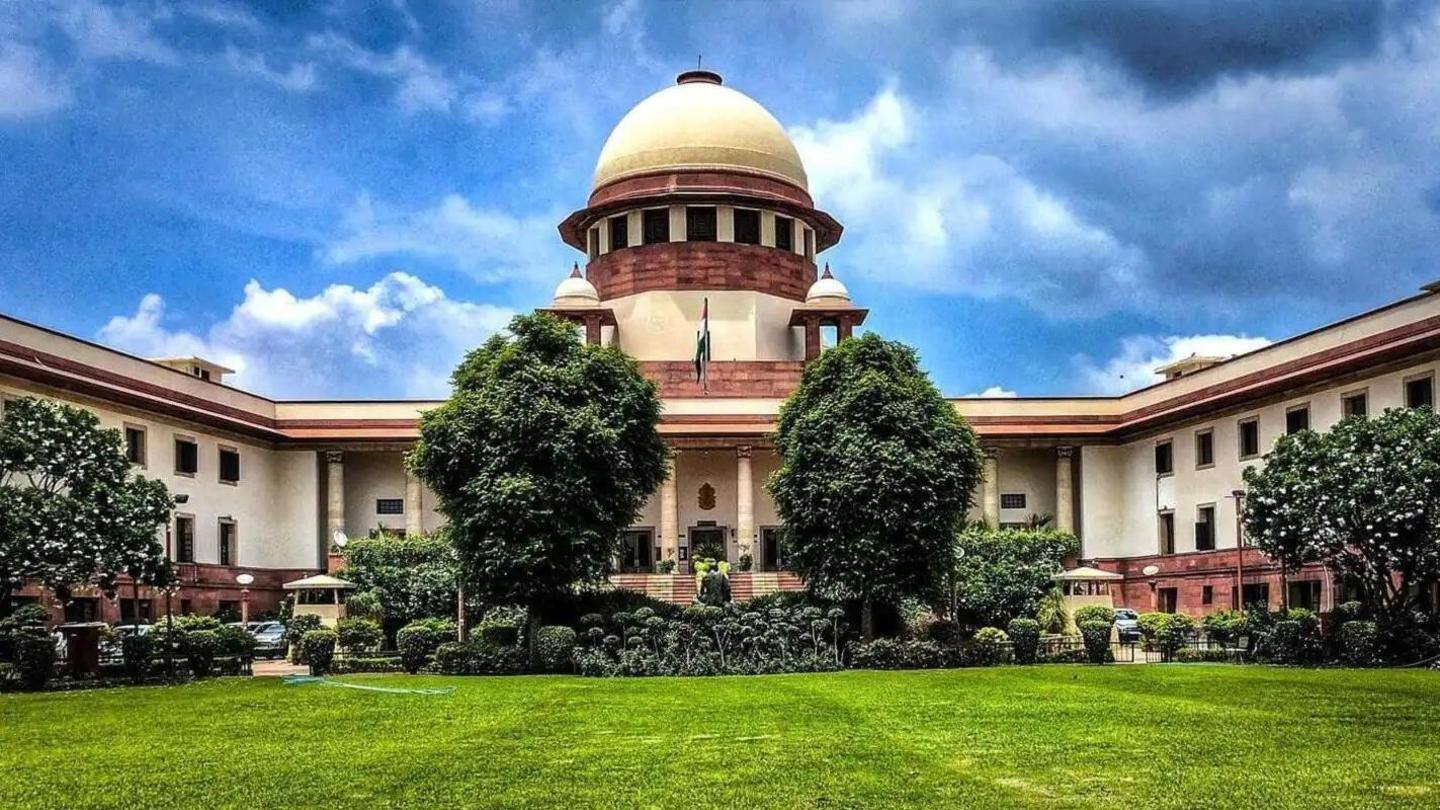
Petition in SC over 'dangerous politics of bulldozers' targeting minorities
What's the story
Islamic organization Jamiat Ulama-I-Hind (JUH) has petitioned the Supreme Court to prohibit using bulldozers to demolish houses of those suspected of involvement in criminal incidents and violence.
It requested the court to ensure no precipitative action is taken against any accused in criminal matters and no accommodation is demolished as punishment.
It asked the SC to issue necessary directions to the Centre and states.
Context
Why does this story matter?
Communal tensions have recently seen a surge across India, with the Madhya Pradesh government coming under attack for targeting only Muslim properties after the Ram Navami clashes.
According to the petition, there has lately been a rise in incidents of government administrations demolishing residential and business properties as a punitive measure against people allegedly associated with criminal offenses such as riots in several states.
Statement
'Dangerous politics of bulldozers' destroying minorities: JUH head
Jamiat Ulama-e-Hind President Arshad Madani tweeted that the organization has filed a plea in the SC against "the dangerous politics of bulldozers."
He further alleged this practice has been started to "destroy minorities, especially Muslims, under the guise of crime prevention in BJP-ruled states."
Moreover, the petition said such measures and actions are in contravention of India's constitutional ethos and the criminal justice system.
Quote
Such measures undermine criminal justice system: Petition
The JUH's petition also highlighted, "Such measures [destruction of properties] by governments undermine the criminal justice system of our country, including the important role of the courts. The legal process, including the pre-trial and trial stage, is hindered by these acts of the state."
Petition
Petition advocates police reforms, asks ministers to speak responsibly
The petition also urged the apex court to issue orders requiring police officers to undergo training for dealing with communal riots and restive populations.
Furthermore, the petitioner also sought directions prohibiting ministers, legislators, and anyone not connected to the criminal investigation from—publicly or through any official communication—charging someone for criminal action until a criminal court has made a decision.